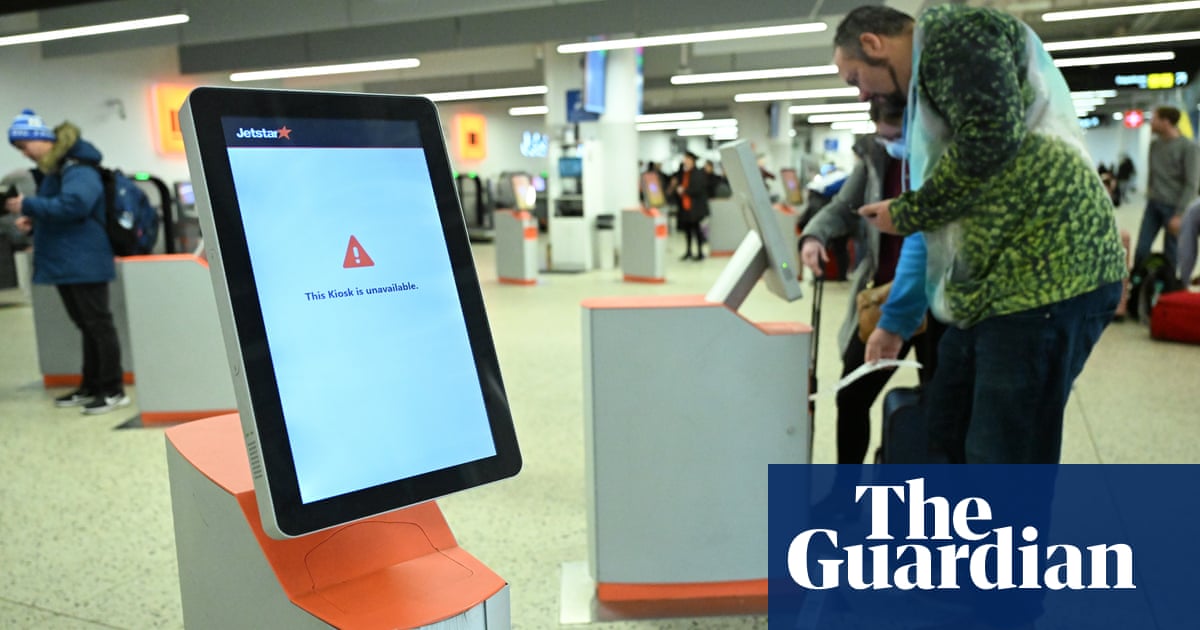
The home affairs minister, Clare O’Neil, says the company at the centre of the world’s largest ever IT outage has told the federal government it is close to an automatic fix which would allow systems to return online.
The global outage on Friday afternoon occurred after the cybersecurity firm Crowdstrike updated a widely used cloud-based software product called Falcon.
The update to the Falcon software, which interacts with other parts of computer systems and software like Microsoft’s Windows products, caused a malfunction that essentially disabled those systems globally.
Microsoft, in a blog post update from its vice-president of operating systems security, David Weston, said it estimated 8.5m Windows devices had been affected around the world.
O’Neil posted on social media on Sunday afternoon that a meeting of federal and state governments and the private sector had been told by Crowdstrike that “that they are now close to rolling out an automatic fix to the issue with their update, as is Microsoft”.
The meeting occurred as part of the national coordination mechanism, which was established during the Covid-19 pandemic to draw federal, state and territory governments and agencies together along with the private sector.
It is the third meeting of the mechanism since the outage.
“This should increase the speed at which systems across the economy are back online,” O’Neil posted on X.
“There has been a huge amount of work over this weekend to get the economy back up and running.
“However, it will take time until all affected sectors are completely back online. In some cases we may see teething issues for one or two weeks.”
On Sunday Crowdstrike said the “issue has been identified and isolated, and a fix has been deployed”, and reiterated that it had not been a cyberattack. It advised customers to check the company’s support portal for software updates.
“We understand the gravity of this situation and are deeply sorry for the inconvenience and disruption,” it said.
O’Neil said there had been no impact to critical infrastructure or government services caused by the outage.
She said supermarkets, like many other sectors, were still experiencing issues, but said the sector stressed during the meeting that there were no food shortages and no need to stockpile.
O’Neil also warned again about scammers trying to exploit the outage.
“Examples that have been reported include people posed as airlines offering to resolve issues with delayed flights and criminals posing as technical support offering to fix affected technology.
“It is very important that Australians are extremely cautious of any unexpected texts, calls or emails claiming to be assistance with this issue.
“You can help by making sure vulnerable people, including elderly relatives, are being extra cautious at this time.”
Australia’s largest business organisation said it could be days before some businesses returned to trading.
The Australian Chamber of Commerce and Industry CEO, Andrew McKellar, said smaller businesses may have to wait until Monday to get IT support.
“Its timing couldn’t have been worse on a Friday, and in particular, impacting on a Friday afternoon,” he said.
“That’s meant for many businesses, they’re going to have to wait until early next week to put in place the fixes that they need to do.”
McKellar said it was difficult to say how much the IT outage has cost businesses.
He said it would be unlikely businesses would be able to receive compensation for their losses, but that it may depend on their contractual arrangements.
“Across the board there’s been a wide impact, that’s cost a lot of businesses time, money, lost sales … it’s very hard to put a dollar figure on that,” he said.
“[The losses] are material, they are significant, we have to hope most businesses can weather that sort of impact.”